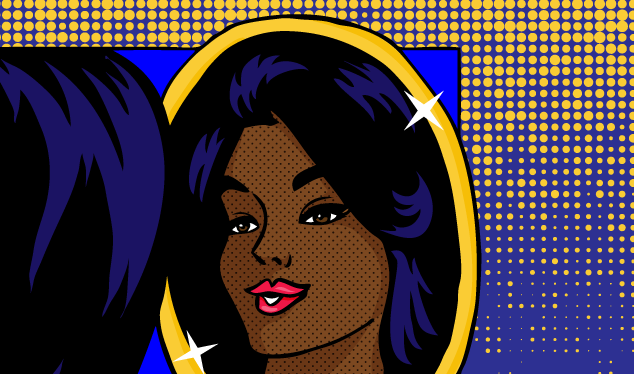
We should love ourselves and not only that, we should love ourselves the way we are. Our bodies do not define us. We are more than our looks. *Sigh*, so forth and so on. Look, I feel this. I know this. Yet…yet I don’t always practice this nor do I feel this mantra of self love to the core every day, all the time.
I’d be a hypocrite if I didn’t tell you I don’t play with different beauty products to accentuate, mask, and alter certain features. I contour. I highlight. I primp.
I have spent an enormous amount of time in front of the mirror wondering how I’d look if I had a smaller nose, bigger eyes, and plumper lips.
How would I look if I had lighter skin and it would pop more brightly against my jet black hair? Would I look more exotic? More desirable? And what does all that even mean? Where is it even coming from, all this wondering, all this need for validation?
[Read Related: From the Campaign Dark is Beautiful: Model Natasha Sharma Sheds Color Bias for Dark-Skinned Women]
And while I’m on a roll with this confessional, I’d be lying if I didn’t admit that I still wince when an Aunty tells me to lose weight or when an Uncle wonders out loud and in dismay as to why I didn’t inherit my father’s lighter (read: better) skin color.
I still do a double-take when I have people in my community inadvertently telling me that my value as a woman is not contingent upon my personality. Rather, it’s how I measure up in the unspoken rule book of how a beautiful Indian woman should look.
Yes, I know I shouldn’t let these things affect me. And like me, I’m sure you, too, know you’re supposed to love yourself despite what people say or what society dictates.
But damn y’all, sometimes it gets emotionally taxing to undo all this public discourse in the privacy of my thoughts and to exercise self love and acceptance. When in the sanctuary of our own bathrooms, when we peer into the mirror, who do we really see or what do we really think? I mean really?
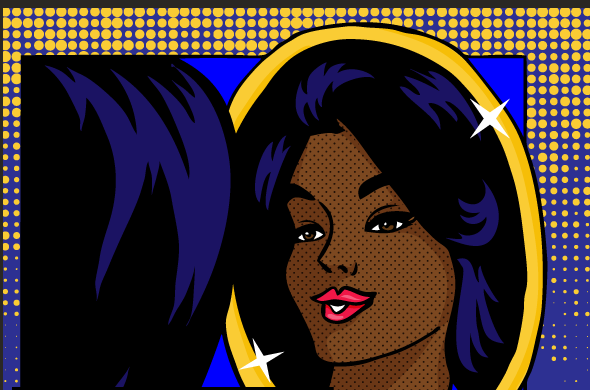
If a significant number of us truly believed in our unique beauty and worth, the global beauty industry wouldn’t be a $160 billion powerhouse.
[Read Related: Dark is Beautiful: An Ode to the Brown Girl]
I’m not blaming you, fellow Brown Girl, nor myself for keeping this industry in power. Not entirely anyway. We are, after all, going up against an industry that predates us and in all honesty, will post date us as well.
What I postulate though is that perhaps many of us don’t practice self love as much as we should. I don’t know how much that “should” should be. There’s no qualified marker but still, we need more self-love, Ladies, because to put it bluntly: we ain’t gettin’ lovin’ readily from society.
No, industry juggernauts prey on our insecurities—insecurities that they have both seeded and watered, insecurities from which they profit.
We’re constantly told we’re not light enough, bright enough, or physically beautiful enough to have worth; that we must buy something, purchase something, and alter ourselves to matter.
One woman is saying enough is enough.
Kavitha Emmanuel, founder and director of Women of Worth (hereon referred to WOW), is changing the way we think and talk about ourselves.
WOW is helping in the collective usurping of popular culture’s power by asking us to re-evaluate beauty standards and what measurements we use in considering our worth (spoiler alert: it’s not our looks!).
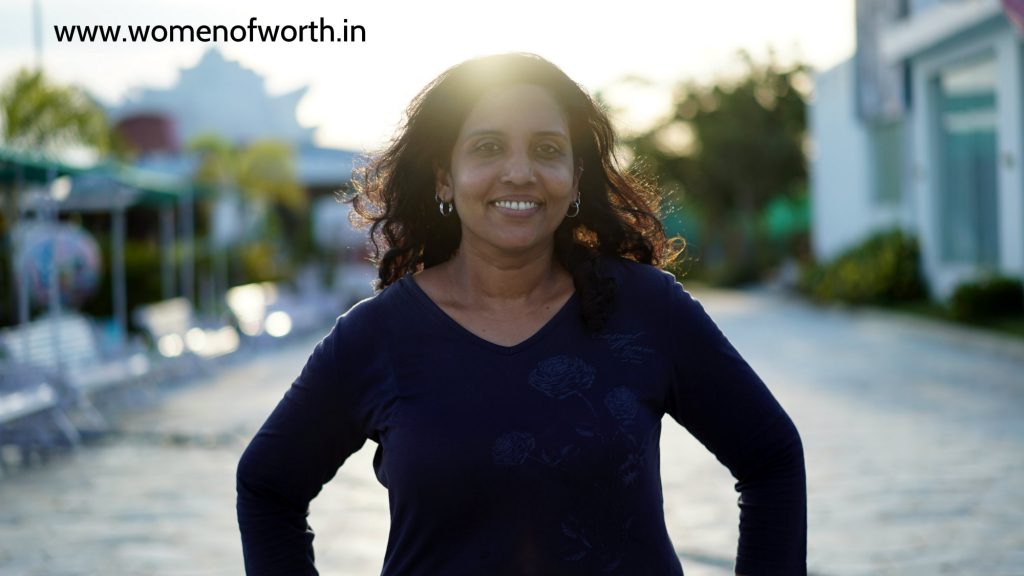
In my own journey of disconnecting myself from an unhealthy digestion of beauty standards, I jumped at the chance to interview Emmanuel and to look more closely at the WOW initiatives for no other reason than simply I could no longer NOT do so.
There’s just too many messages out there, of value this, not that, love yourself but not until X,Y,Z, look like this, and on and on. My god, all these advertisements, all the media clamor–it’s relentless!
There’s just too much noise. I needed some positive psychology to drown out the noise. Enter WOW.
I need to consume more positive and inclusive messages of self-love to offset all the bullshit society crams down my my throat. It takes time to undo all the messages the beauty industry and society has done unto me but, I found it empowering to speak with Emmanuel, to begin the process of dispelling the noise.
I wanted to share her words and WOW’s goals in the hopes that it could empower other women as well. WOW, in short, is “a movement that seeks to empower women across cultures and ethnicity to stand up for justice, equality, and change in all facets of life and society, in both local and global contexts.”
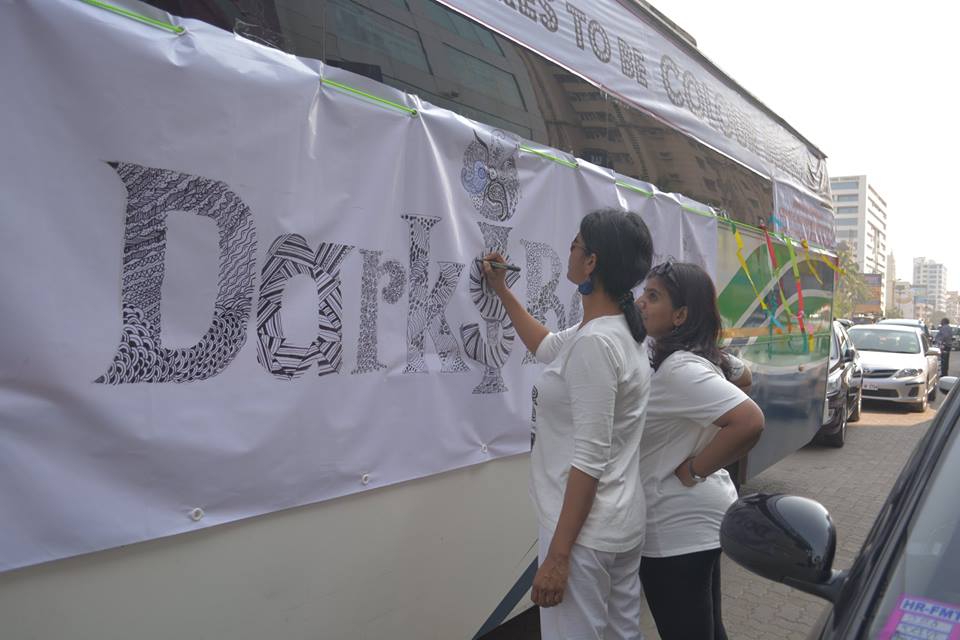
But Ladies, I found that this “movement’ is not only local and global but also both a public and private movement.
To give a clear overview, WOW has three campaigns: Dark Is Beautiful, Girl Arise, and She Leads. All three campaigns have one thing in common– they encourage us to reconsider our self worth in order to eradicate cultural and media bias towards privilege. These campaigns offer support on how to bring programs and workshops to one’s community as well.
But I needed to know, selfishly, what advice Emmanuel could give on how to eradicate said bias on a personal/emotional level without, say, having the support of others.
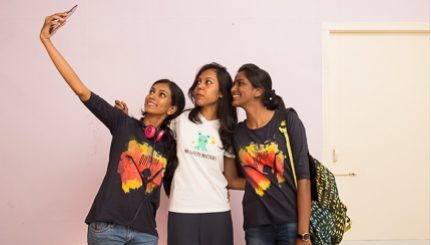
When we are constantly bombarded with particular messages, what is something we can tell ourselves to ignite activism on a personal and individual level?
Emmanuels offers this:
“Any systemic change has to be rooted in a personal conviction. If not, the success will be limited or thwarted by someone else’s vision. So, a crucial part of addressing the bias is to work towards encouraging women to act on what they believe about themselves and how they will act on misconceptions and false messages that they are being bombarded with constantly.
When, we as women, look in the mirror, there is a need to see beyond the physical and see our minds as our driving force. We need to convince ourselves that we are more than the sum of our looks.
But, we cannot do it on our own. We need to surround ourselves with those who will help us on this journey. But if we are unable to find those who can support us on the ground we need to look to other means of support through reading material and other platforms such as our campaigns that provide the opportunity for people to feel that sense of belonging.
We need to seek out platforms and opportunities where we are nurtured to bring ourselves to believing in the core of who we are.”
Emmanuel further explained to me why she chose to name her campaign Dark is Beautiful.
“It encompasses an unapologetic, unpretentious, and unburdening sense of self for millions of people across the globe. It is not a statement of validation, but a proclamation of truth that has been tainted for far too long.”
She reminded me that the message of the campaign is captured in the statement that follows the campaign name and that’s Beauty Beyond Colour.
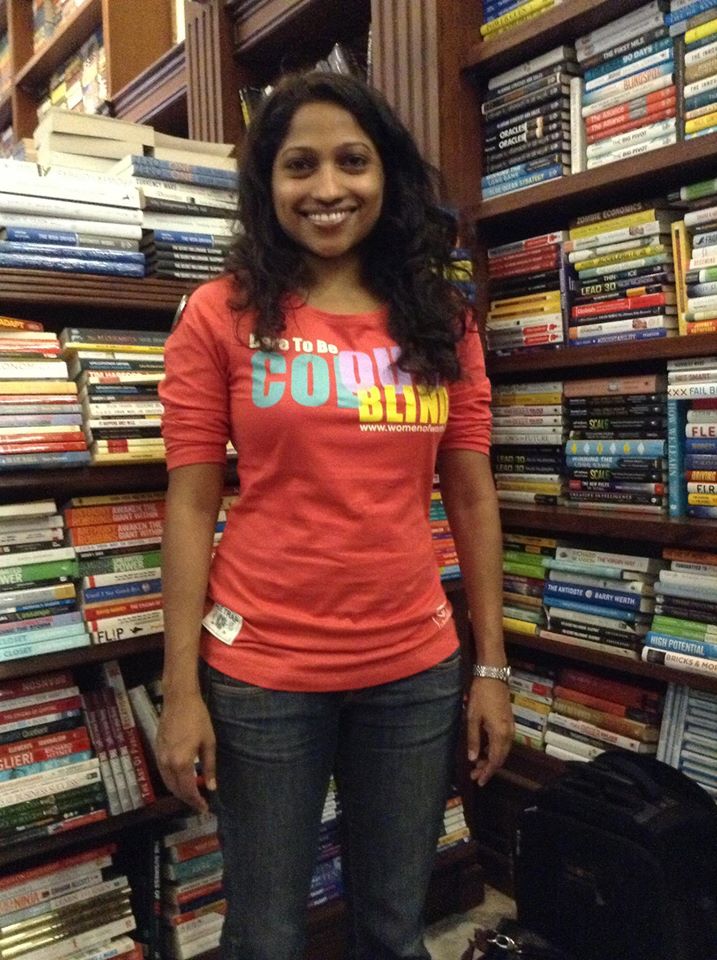
“We are not a campaign that creates beauty standards but defies them. We do not want to limit beauty standards but we aim to expand the thinking of our audience to challenge archaic ideas of beauty that are perpetuated based on people’s insecurities; one in particular – dark skin.”
I find such campaigns to be powerful tools of activism, both public and private. These campaigns speak to the very crux of our insecurities, breaking down why we feel adequate and providing alternatives to detrimental cultural narratives.
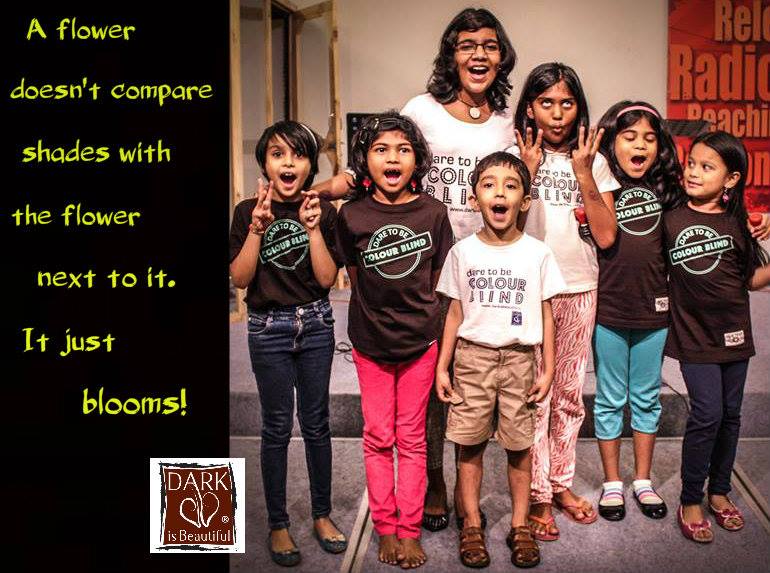
Rather than change the way we look, we have to change the way we think. Emmanuel agreed, adding:
We, as women do a lot of self-talk. It may be an exercise worth our time to stop and evaluate our self-talk to see how much of it is constructive and positive and how much of it is negative and not based on facts. We need to train our minds to think positively about ourselves. This may not happen overnight. But through consistent intentional effort to change our thought patterns we can certainly learn to filter false messages and believe in the core of who we are as individuals.
However, Emmanuel is under no disillusion of what she or any of us are up against. She acknowledges that changing one’s mindset is not without its challenges.
In fact, this challenge is what stimulates WOW’s campaigns and focus on training. She explains, “Training is a key focus area alongside advocacy. One of the hardest things to do is change mindsets. Culture, tradition, and time have left some negative imprints that take us long to unlearn.” Her main goals?
“We’d like to challenge our skeptics to consider the idea of segregation and discrimination caused by phrases like, “Fair and Lovely,” or “White Perfect” that go unchallenged for stereotyping beauty. The word we always emphasize on in the phrase “dark is beautiful’ is that dark IS beautiful and so is very skin color on the face of the earth. But having said that, we would like to also stress that ‘beauty’ is not a factor limited to physical features. Again, we need to train ourselves to believe that ‘beauty’ is found in one’s inner-self. We need to learn to say NO to the unconscious conditioning of our minds to equate beauty with physical attributes.”
I strongly encourage you read more about these campaigns if you, like me, are looking for ways to be involved in the community at large and learn how to value your self and other women. Click here for more insights!
Those interested to host an event can send WOW an email. WOW will access yours needs, suggest programs that suit your audience, and provide material that can be used.
WOW encourages public participation and believes in partnerships with like-minded individuals and organizations. No one organization or movement can address this issue alone.
We need a concerted effort that will be committed to constantly addressing this issue in innovative ways. Art is a great platform to communicate positive messages. We welcome creative minds to join hands with us in bringing awareness and education that will play a significant role in changing mind-sets

Let’s redefine beauty, Ladies.
Soni Satpathy-Singh is a recipe writer and content developer who resides in Manhattan. She is either always cooking, eating, or writing, be it for work or simply because she loves to! She is dedicated to women’s rights and she firmly believes that “a woman’s place is in the house…senate and oval office.”





